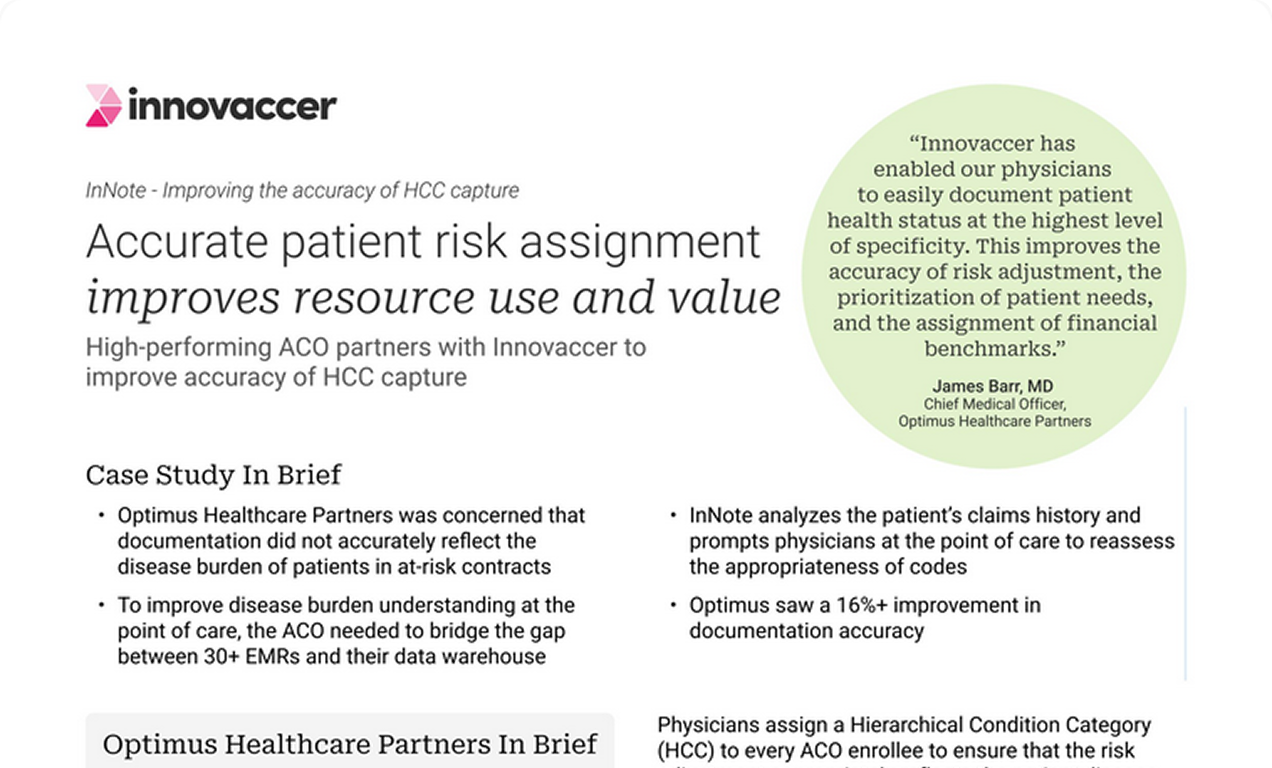4 Ways Ambient Documentation Transforms Clinical Workflows

For decades, researchers have been working toward a common vision of ambient intelligence, achieving a pervasive computing environment that enables interaction with and responds appropriately to humans. Finding ways to harness the cloud and advanced AI have helped to create more intelligent spaces that help people live and work more safely, efficiently, and sustainably.
Ambient clinical intelligence is radically reshaping the healthcare landscape, profoundly altering the experiences of both medical professionals and patients. The technology aims to streamline care delivery, enhance efficiency, and provide personalization. It marks a significant advancement in care delivery, promising improved patient outcomes and reduced provider burnout.
This innovative approach in healthcare technology employs sophisticated voice-recognition AI to capture and record patient-doctor conversations as they naturally occur. The system allows physicians to maintain undivided focus on their patients, while simultaneously generating precise, comprehensive clinical notes that are seamlessly integrated into electronic health records (EHRs).
A recent study by Sermo revealed that enhancing workflow efficiency tops the list of physicians' priorities, closely followed by the desire for improved work-life balance. These findings align with the Medscape report on burnout and depression among medical professionals which identified key contributors to physician burnout: administrative duties (cited by 60% of respondents), extensive work hours (34%), and limited personal autonomy (32%).
How Ambient Documentation is Improving Workflows
By addressing these pain points, ambient documentation promises to alleviate the burden on healthcare providers, potentially reducing burnout and improving efficiency while providing job satisfaction. The introduction of these new voice-enabled capabilities to clinical workflows—and the impact they have on the day-to-day lives of clinicians is transformative.
- Increasing Documentation Efficiency -Advanced AI solutions, such as Innovaccer’s Provider Copilot, allow clinicians to focus on patient interactions while automatically generating accurate documentation. This technology enables physicians to maintain high-quality interaction, perceive subtle patient cues, and build stronger relationships, all while ensuring comprehensive clinical notes are captured without manual effort. The result is a more efficient, human-centered healthcare experience that optimizes patient care and clinical workflow. Learn more about strategies for minimizing documentation errors in healthcare settings.
- Streamlining Routine Tasks -Ambient documentation technology integrates voice-activated interfaces with electronic health records, allowing clinicians to access patient data, manage appointments, and perform administrative tasks through verbal commands. This seamless automation addresses inefficiencies in healthcare workflows, from outpatient management to billing processes. This aims to mitigate frustration and burnout among healthcare professionals, enabling them to focus more on patient care and improving overall job satisfaction.
- Offering Real-Time Guidance -Ambient documentation systems do more than just record – they actively assist clinicians. By analyzing conversations in real time, these AI assistants can offer evidence-based suggestions, remind clinicians about important health screenings, or flag potential issues. This in-workflow guidance not only improves the quality of care, but also ensures that documentation is thorough and meets quality standards. It's like having a knowledgeable colleague always at your side, enhancing decision-making without disrupting the natural flow of patient care.
- Simplifying Coding and Ensuring Compliance -Perhaps one of the most powerful features is the ability to tackle the complex world of medical coding and regulatory compliance. As the patient encounter takes place, the system can suggest appropriate diagnostic and procedure codes, ensuring accurate billing. Moreover, it keeps an eye on regulatory requirements, alerting providers if documentation is missing critical elements for compliance with programs like Medicare or MACRA. This proactive approach significantly reduces the risk of claim denials and audit issues, potentially saving healthcare organizations from financial headaches down the line.
The Impact of Innovation
The advent of ambient clinical intelligence represents a paradigm shift in healthcare delivery, addressing long standing challenges faced by medical professionals. By seamlessly integrating advanced AI and voice recognition technology into clinical workflows, it revolutionizes the interactions between healthcare providers and patients thereby helping them to manage their responsibilities better.
The impact of these innovations extends far beyond mere technological advancement – it touches the core of the healthcare experience, promising to alleviate physician burnout, improve work-life balance, and ultimately enhance the quality of patient care. By embracing these technologies, healthcare organizations can look forward to a future where providers are empowered to focus on what matters most – the health and well-being of their patients – while navigating the complexities of modern healthcare with greater ease and effectiveness.


.png)






.avif)









.svg)
.svg)

.svg)

